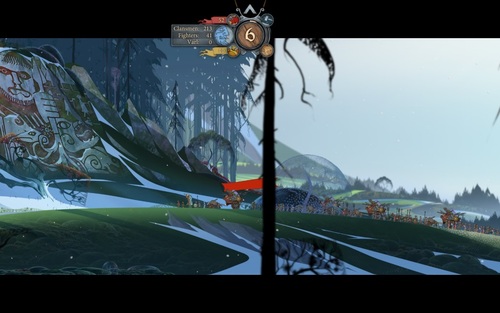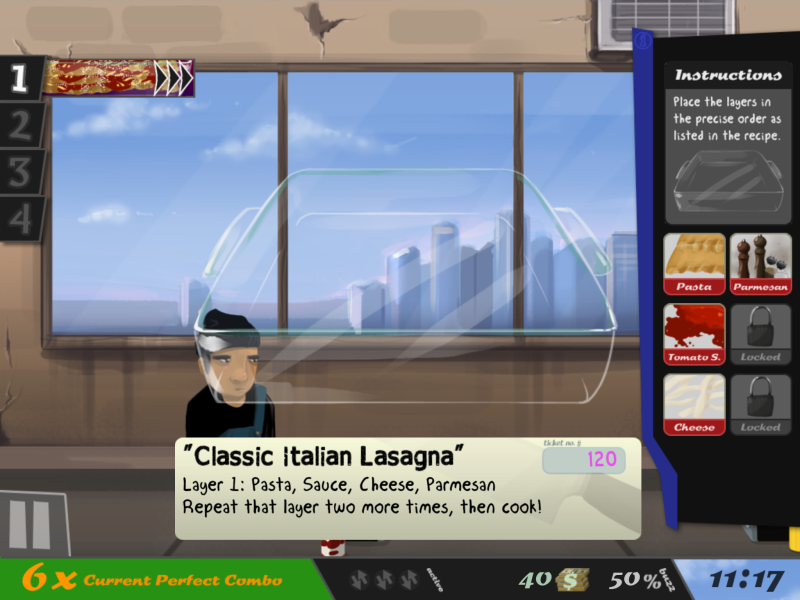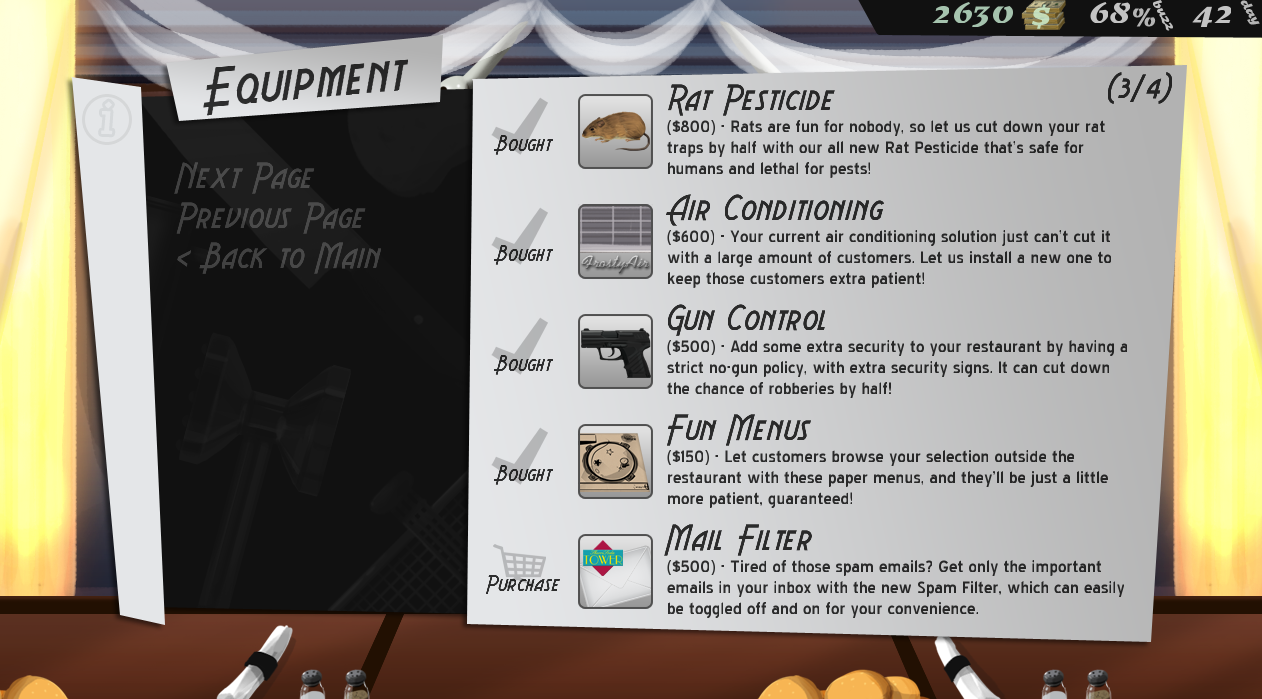HPAWS is a really interesting little shop simulation game where you run a weapon shop, working with various smiths in order to research, build and sell the best weapons available and progress through a bunch of little quests in order to get fame, money and give experience to the buyers of your gear. I really enjoyed it and I wish I had more time to play it because the fun of discovering new recipes and upgrading your shop really hooked me. On the down side, there are a few options that this game really could've used to make the experience truly perfect.
Reigns is one of these weird choose your own adventure type of game mixed with some kingdom management on iOS with a little of a rogue-like flair where you make decisions by swiping a card left or right, affecting your kingdom in four categories, with the immediate goal of not having any meter go too high or too low. There is an overarching story that expends as you find new cards and unlock more characters, and while I haven't got there, I presume that there is an ending to reach at some point. I had some good time with it, but ultimately grew bored.
Even after about fifteen years in computer science, I'm not really sure what 'hacking' entails. Hollywood hacking is one thing, opening some file with an hex editor and changing values here and there is also a form of hacking, is Hacknet showing a form of hacking that exists? Are there port-scanning tools that you can run on remote IP addresses to break security and then get root access in remote computers? No matter, my curiosity aside, Hacknet is really neat, I'm not sure if it's 100% accurate, but it does use some unix shell commands, makes you do hacking missions with an interesting storyline and makes you feel really happy when you type that final command to finish a hack while looking at a timer counting down.
Cities: Skyline is what Sim City wanted to be. It's the proof that you can make good city simulation games, it's an amazing game that brings back to me all of my memories about city simulators - the last one I had played before Sim City was the SNES version of Sim City, so bear with me here - and while I struggled to understand the core systems of the game - and some would argue that even when I had 'finished' my time with it, I still struggled to understand how proper city planning worked - and found a weird glitches here and there, I had a wonderful time and would recommend it 100% to anyone enjoying city sims.
Out There is a brutal space adventure game where you are an astronaut in a spaceship and you need to go at the bottom right of the map. To do so, you spend fuel, oxygen, break your spaceship instruments, find alien planets, make decisions, spend fuel, salvage something for precious iron, spend fuel, then drift endlessly in space. I enjoyed it, even if I couldn’t make it very far.
A little strategy game with some good old decision-making weaved in, The Banner Saga has style by the bucket and spends a great deal to construct an interesting world around familiar and simple good gameplay mechanics.
I don't know if there was something I was doing wrong with Fiz when I played it but the game didn't explain much to me. Although I had a poor time with it, Fiz is well done, devoid of microtransactions with a bunch of systems to exploit and some sense of discovery and a ton of content, I thought at first that I would play through the whole thing, but got annoyed after a short while and stopped.
Far from me to remind people of the review I wrote of the original PC version of Cook, Serve, Delicious but CSD was one of the contestants from my game of the year last year, it was a fun, fast paced wario-ware in spirit game where you made foods and accomplished chores in a restaurant in a micro-game fashion. I was pleased to try the iPad version - maybe it would've fixed the few things I didn't like about the original - oh, how wrong was I.
A weird mix of Real Time Strategy, light turn-based strategy elements, 3rd person shooter and political management story driven game, Divinity: Dragon Commander excels at some parts of it. The talking about storytelling are excellent and you really want to know what's coming next, but the other parts of gameplay felt lacking for me.
Swords and Potions 2 is a bit like Recettear, Sim City and a facebook game. You play a shop owner, running his business of making and selling things to adventurers, sending them on quests and upgrading your city. Being a flash game and free to play, premium currencies and timers are rampant, but I still think there's an addictive and interesting side to this little manager game.
I didn't back Star Command when it was on Kickstarter because I rarely back kickstarters, but I decided to give it a shot when it launched on the iPad a few weeks ago and see what kind of space game it was. This game has charm but a few issues that could easily be fixed. Okay, some issues are tougher to crack, especially the crew control, but I'll try to offer some insight on what is wrong with Star Command and what I would do with it.
At first it was a mess, game not unlocking for multiple hours, servers down, queues, weird error messages, being unable to play with friends, then they disabled the fastest speed and leaderboards/achievements, then a week passed... And now Sim City is playable, more or less free of server woes and other technical problems that have close to no bearing on core design discussions. Of course one could argue that the fact that Sim City needs to be always online is a core design problem but I think that by itself it wouldn't have been if the servers were on from the start with 0% errors and problems related to the technical issues.
Pixel People is as casual as they go in term of iOS games, you have two resources, one of them can be paid for with real money and is used to save you the most time, the other grows slowly over time. The visual style is pretty neat and there one some very interesting game mechanics in there that made me bite the bullet and play tons of it, ultimately tho, it fails a bit short of what I wanted from it.
I've been playing a ton of Cook Serve Delicious over the past two weeks and boy is it fun. In its most simplistic form, Cook Serve Delicious (Henceforth referred to as CSD) is a stressful microgame collection glued to a restaurant management sim game. It's also very indie, not sold on steam yet and programmed in Game Maker, I suppose that taking a look at smaller games should be made with a more forgiving mind, but the ideas and designs can still be judged on the same level.





















































